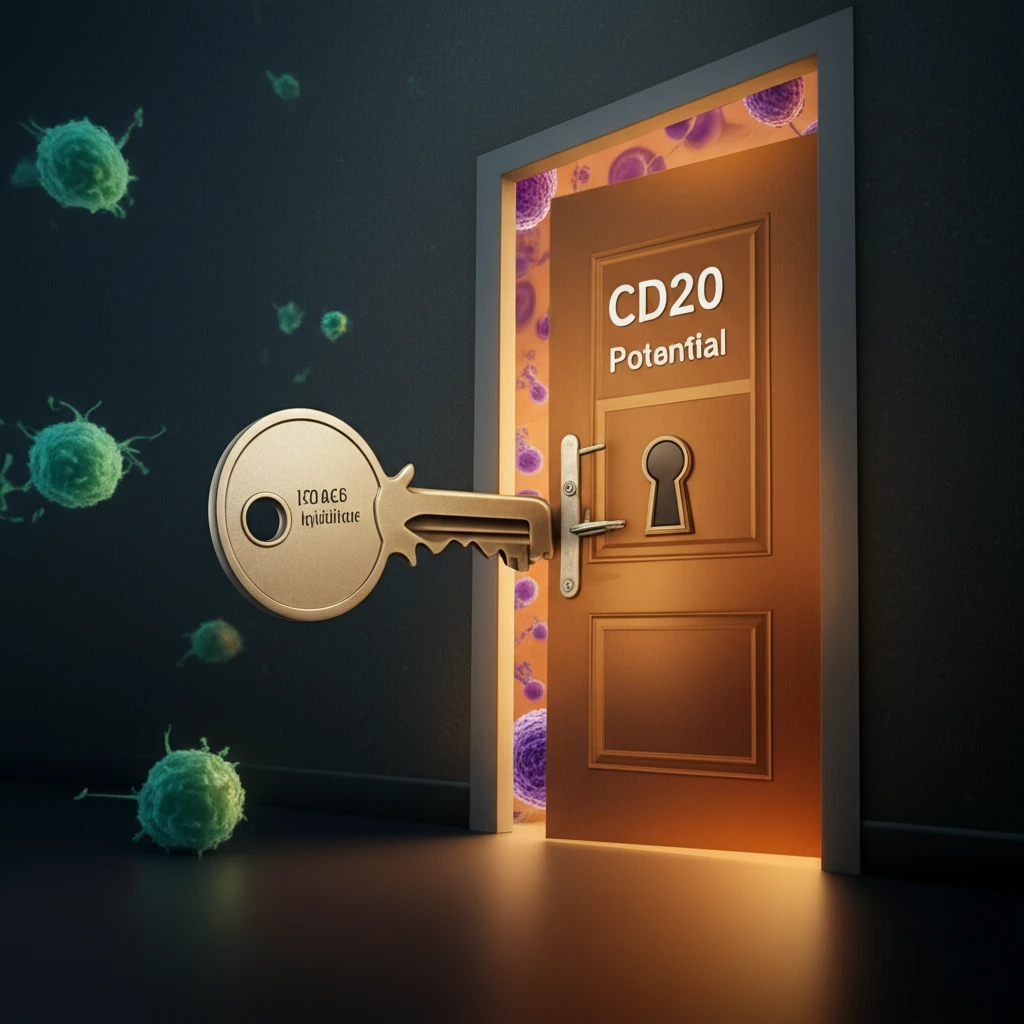
Unlock Cancer Treatment: How HDAC6 Inhibition Supercharges Anti-CD20 Therapy
"A breakthrough study reveals how blocking HDAC6, an enzyme involved in protein regulation, can significantly boost the effectiveness of anti-CD20 monoclonal antibodies against blood cancers."
For years, anti-CD20 monoclonal antibodies have revolutionized the treatment of blood cancers like non-Hodgkin lymphoma and chronic lymphocytic leukemia. However, resistance to these therapies remains a significant hurdle for many patients. Scientists are constantly seeking ways to enhance the effectiveness of these antibodies, and a recent study published in "Blood" sheds light on a promising new approach.
The study, led by researchers at the Medical University of Warsaw, Poland, unveils the critical role of HDAC6 (histone deacetylase 6) in regulating CD20 levels on cancer cells. CD20 is a protein found on the surface of B cells, including cancerous ones, and is the target of anti-CD20 antibodies like rituximab. When these antibodies bind to CD20, they trigger the destruction of the cancer cells. However, if CD20 levels are low, the antibodies are less effective.
The groundbreaking research demonstrates that inhibiting HDAC6 can significantly increase CD20 levels on cancer cells, making them more vulnerable to anti-CD20 antibody therapy. This discovery opens up new avenues for developing combination therapies that could overcome resistance and improve outcomes for patients with blood cancers. Let's dive deeper into how this innovative approach works and what it could mean for the future of cancer treatment.
HDAC6: The Key to Unlocking CD20 Potential

HDAC6 is an enzyme that plays a crucial role in regulating the acetylation status of proteins within the cell. Acetylation is a process that modifies protein function, and HDAC6 specifically targets proteins in the cytoplasm, the area outside the cell's nucleus. Interestingly, HDAC6 is involved in protein degradation, a process where cells break down and remove misfolded or damaged proteins. In cancer cells, this degradation process can affect the levels of key proteins like CD20.
- HDAC6 Inhibition: Specific inhibitors like tubacin, tubastatin A, and ricolinostat significantly increased CD20 levels on cancer cells.
- Enhanced Efficacy: HDAC6 inhibition boosted the effectiveness of anti-CD20 antibodies like rituximab and ofatumumab in killing cancer cells.
- Mechanism of Action: HDAC6 inhibition increased CD20 protein synthesis without affecting CD20 gene expression.
- In Vivo Success: In mice, HDAC6 inhibition improved the survival rates of those treated with rituximab.
The Future of Blood Cancer Therapy: Combination Approaches
This research provides a strong rationale for exploring combination therapies that combine HDAC6 inhibitors with anti-CD20 antibodies. By increasing CD20 levels on cancer cells, HDAC6 inhibitors can make these cells more vulnerable to the effects of anti-CD20 antibodies, potentially overcoming resistance and improving outcomes. Several HDAC6 inhibitors are already in clinical development for various cancers, and these findings suggest that they could also be valuable tools in the fight against blood cancers. While further research is needed to fully understand the mechanisms involved and to identify the optimal combination strategies, this study represents a significant step forward in the quest for more effective cancer treatments. As research progresses, these combined therapies could offer new hope and improved survival rates for patients battling blood cancers.
